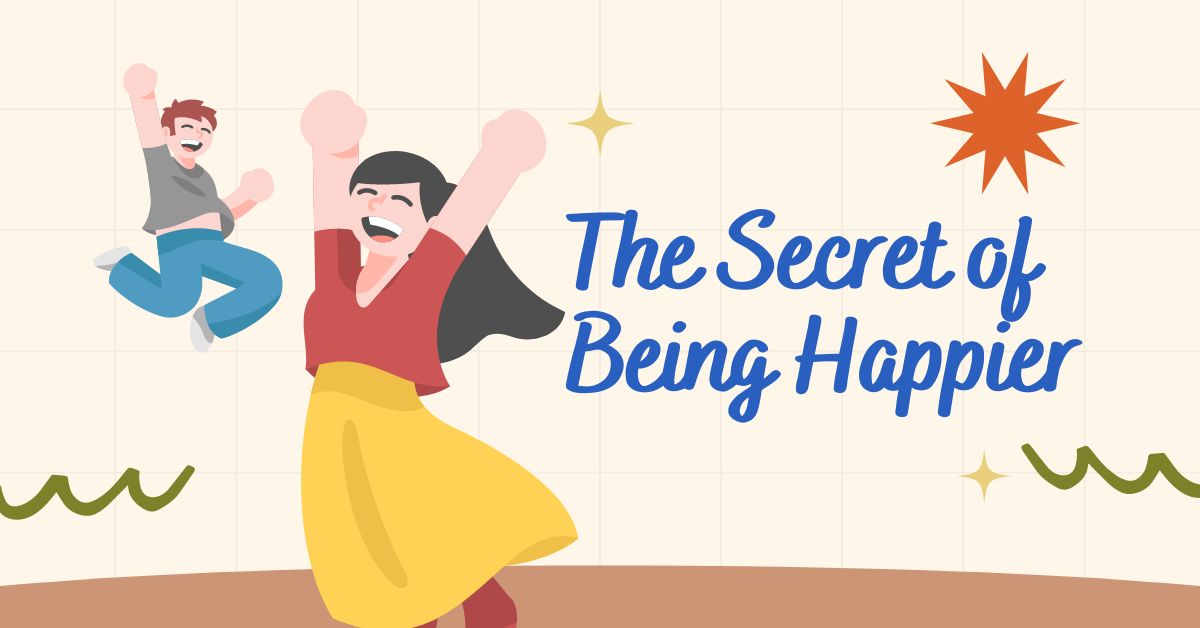Why People Aren’t Happy: Understanding the Misconceptions and Solutions
In our quest for happiness, many of us are guided by instincts and societal pressures that often lead us astray. Despite our best efforts to achieve happiness through material possessions, academic success, and societal benchmarks, research reveals that these pursuits frequently fall short of delivering genuine joy. Let’s explore why our methods for seeking happiness may be flawed and uncover effective strategies to cultivate true well-being.
The Misconception of Happiness: Why We Are Often Disappointed
Materialism and Social Comparison
We live in a culture driven by materialism and societal comparisons. We are constantly encouraged to acquire more, achieve more, and look better. However, studies show that these pursuits don’t necessarily lead to lasting happiness. For instance, research by Gilbert and Wilson (2000) highlights the concept of “miswanting”—the phenomenon where we misjudge how much happiness a future event will bring us. Our brains often deceive us into thinking that acquiring more wealth or achieving higher social status will lead to lasting satisfaction, yet this is rarely the case.
The Role of Reference Points
Our perceptions of happiness are heavily influenced by our reference points. Instead of evaluating our happiness based on our personal situation, we often compare ourselves to others. For example, we might feel discontent with our income if we compare it to celebrities on television rather than our colleagues. Studies by Medvec et al. (1995) and Clark (2003) reveal that such comparisons skew our satisfaction. Bronze medalists in the Olympics, for instance, are often happier than silver medalists because they view their achievement relative to not winning a medal at all.
Hedonic Adaptation
Another factor impacting our happiness is hedonic adaptation—the human tendency to return to a baseline level of happiness after experiencing significant positive or negative events. Whether it’s purchasing a new car or landing a dream job, the initial thrill fades as we become accustomed to our new circumstances. Research indicates that our happiness quickly reverts to its baseline after such events, a concept explored in various studies including those by Lucas et al. (2003).
Effective Strategies for Achieving Genuine Happiness
1. Invest in Experiences, Not Material Goods
Studies suggest that investing in experiences rather than material possessions leads to greater and more lasting happiness. Experiences, such as traveling or attending concerts, are less prone to hedonic adaptation and provide richer, more memorable interactions. Anticipating and reflecting on these experiences also enhances our happiness. So, prioritize experiences over things to boost your long-term joy.
2. Avoid Social Comparisons
Constantly comparing yourself to others can undermine your happiness. Practice becoming aware of your comparisons and consciously redirect your focus to appreciating what you have. Cognitive behavioral techniques, like the “Stop” technique, can help interrupt negative comparison thoughts and foster a greater sense of contentment.
3. Prioritize Sleep
Chronic sleep deprivation has been linked to decreased mood and overall well-being. Research by Dinges et al. (1997) and Walker et al. (2002) underscores the importance of adequate sleep for maintaining mental and physical health. Implement good sleep hygiene practices, such as avoiding screens before bed and limiting caffeine intake, to improve your sleep quality and, consequently, your happiness.
4. Practice Gratitude
Regularly practicing gratitude has been shown to significantly impact happiness. Keeping a gratitude journal, expressing thanks to others, and reflecting on positive aspects of your life can increase your overall sense of well-being. Studies indicate that gratitude can enhance relationships and improve mental health.
5. Engage in Mindfulness and Meditation
Mindfulness and meditation can help counteract the negative effects of mind-wandering and enhance overall happiness. Research by Killingsworth and Gilbert (2010) highlights that mind-wandering often leads to unhappiness. Meditation helps redirect focus to the present moment, reducing stress and increasing feelings of contentment. Aim to meditate for at least ten minutes daily to reap these benefits.
6. Incorporate Regular Exercise
Exercise has been shown to improve mood and cognitive function. Studies such as those by Hillman et al. (2008) demonstrate that regular physical activity is more effective than antidepressants in treating depression. Incorporate at least 30 minutes of exercise into your daily routine to boost your mood and health.
7. Foster Social Connections
Strong social ties are essential for happiness. Engaging in meaningful social interactions and building a diverse social network can improve your overall well-being. Simple acts of social connection, such as engaging in conversations or reconnecting with loved ones, can significantly enhance your happiness.
8. Practice Savoring
Savoring involves taking the time to fully appreciate and enjoy positive experiences. By reflecting on and discussing enjoyable moments, you can extend and amplify the joy they bring. Try to savor one positive experience each day to increase your overall happiness.
9. Perform Random Acts of Kindness
Engaging in acts of kindness can enhance your mood and sense of fulfillment. Performing random acts of kindness, whether big or small, can make you feel happier and more connected to others. Keep track of your acts of kindness to reinforce this positive behavior.
10. Embrace Negative Visualization
Negative visualization involves considering how your life would be different without certain positive elements. This practice helps you appreciate what you have and counteract the effects of hedonic adaptation. Reflect on the absence of positive aspects in your life to enhance your gratitude and happiness.
Money vs. Time: The Happiness Dilemma
Research by Whillans et al. (2016) indicates that people who prioritize time over money experience greater happiness. Valuing time allows for more meaningful social interactions and personal fulfillment. Reevaluate your priorities to focus on time well spent with loved ones rather than solely pursuing financial gains.
Understanding the discrepancies between our expectations and actual experiences of happiness can help us make more informed choices about how we seek fulfillment. By adopting strategies such as investing in experiences, avoiding social comparisons, and practicing gratitude, we can align our actions with our true sources of happiness. Implementing these evidence-based practices can lead to a more profound and lasting sense of well-being.
What strategies have you found effective in your pursuit of happiness? Share your thoughts in the comments below, and if you found this post helpful, spread the word by sharing it on social media!
References:
- Gilbert, D., & Wilson, T. (2000). Miswanting: Some problems in the forecasting of future affective states. In Thinking and feeling: The role of effect in social cognition (pp. 178-197). New York, NY: Cambridge University Press.
- Medvec, V. H., Madey, S. F., & Gilovich, T. (1995). When less is more: Counterfactual thinking and satisfaction among Olympic medalists. Journal of Personality and Social Psychology, 69(4), 603–610.
- Clark, A. E. (2003). Unemployment as a social norm: Psychological evidence from panel data. Journal of Labor Economics, 21(2), 323-351.
- Dinges, D. F., Orne, M. T., & Orne, E. C. (1997). Cumulative sleepiness, mood disturbance and psychomotor vigilance performance decrements during a week of sleep restricted to 4-5 hours per night. Sleep: Journal of Sleep Research & Sleep Medicine, 20(4), 267-277.
- Walker, M. P., & Stickgold, R. (2002). Practice with sleep makes perfect: Sleep-dependent motor skill learning. Neuron, 35(1), 205-211.
- Killingsworth, M. A., & Gilbert, D. T. (2010). A wandering mind is an unhappy mind. Science, 330(6006), 932–932.
- Hillman, C. H., Erickson, K. I., & Kramer, A. F. (2008). Be smart, exercise your heart: Exercise effects on brain and cognition. Nature Reviews Neuroscience, 9(1), 58-65.
- Whillans, A. V., Dunn, E. W., & Kasser, T. (2016). Valuing time over money is associated with greater happiness. Social Psychological and Personality Science, 7(3), 213-222.





